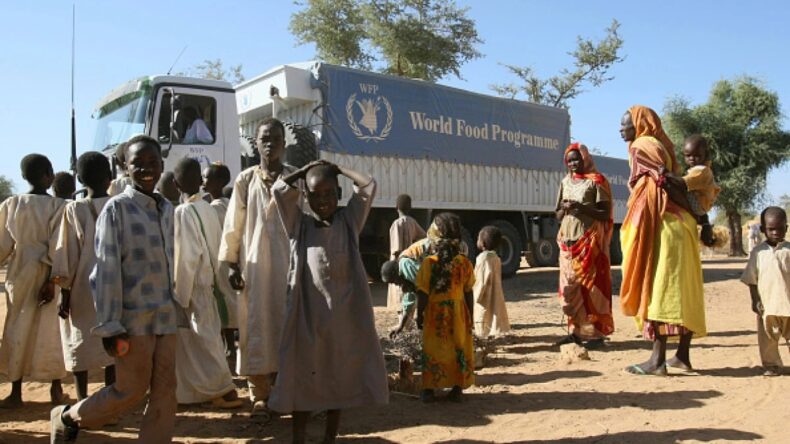The World Food Programme has resumed operations in Sudan despite security risks, to provide vital assistance to vulnerable communities facing severe food insecurity due to the ongoing conflict between rival military groups. The situation in Sudan is reaching a breaking point as the humanitarian crisis deepens, with an urgent need for increased funding to support relief efforts and a peaceful resolution to the conflict.
El Geneina: Sudan is facing a deepening humanitarian crisis, as millions of people are pushed into hunger due to the ongoing conflict between rival military groups. The World Food Programme (WFP), which provides vital assistance to vulnerable communities, suspended its operations in Sudan after three of its staff members were killed in North Darfur on 15 April. However, the organization has announced that it will resume food distribution in four states, including Gedaref, Gezira, Kassala and White Nile.
Cindy McCain Urges Aid
The security situation in Sudan remains precarious, and the WFP is taking several measures to ensure the safety of its staff and partners. The organization is prioritizing locations where humanitarian access is assured, while also considering capacity, security, and access-related factors. WFP Executive Director Cindy McCain emphasized the urgent need to provide aid to those most in need, stating that the number of people facing food insecurity are expected to grow significantly as the conflict continues.

Before the conflict, over 15 million people in Sudan were already facing severe food insecurity. The ongoing fighting has exacerbated the situation, leaving many without access to necessities like water, food, fuel, and medical care. The UN Secretary-General, António Guterres, dispatched his most senior aid official, Martin Griffiths, to the region to assess the situation. Griffiths warned that the situation in Sudan is reaching a breaking point, as the humanitarian crisis deepens.
UN Officials Call for Action on Sudan Crisis
The urgent need to end the fighting in Sudan was also highlighted during a virtual briefing held by senior officials from the UN and its partners. The officials updated the international community on the humanitarian response to the crisis and emphasized the need for increased funding to support relief efforts in Sudan. The briefing discussed the need for a peaceful resolution to the conflict and urged all parties involved to prioritize the safety and well-being of civilians.

The resumption of WFP’s operations is a positive step towards providing aid to those in need. However, the humanitarian crisis in Sudan is likely to continue unless there is a resolution to the conflict. The international community must provide support and funding to address the urgent needs of those affected by the crisis. The use of violence to resolve disputes only leads to more suffering and devastation. Therefore, all parties involved in the conflict must prioritize the safety and well-being of civilians and work towards a peaceful resolution of the conflict.
Humanitarian Crisis in Sudan: Urgent Action Needed
The humanitarian crisis in Sudan is a reminder of the importance of addressing the root causes of conflicts and the need for the international community to support efforts towards building peaceful societies. As the world faces numerous crises, including the COVID-19 pandemic, we must prioritize the needs of vulnerable communities and work towards a more equitable and sustainable future. The UN and its partners play a crucial role in providing aid and support to those in need, and we must continue to support their efforts towards building a better world for all.

The ongoing conflict in Sudan has led to a deepening humanitarian crisis, with millions of people facing food insecurity and other basic needs. The resumption of WFP operations is a positive step, but more support and funding are needed to address the urgent needs of those affected by the crisis. A peaceful resolution to the conflict is essential, and the international community must prioritize the safety and well-being of civilians. We must work towards building peaceful societies and a more equitable and sustainable future for all.













